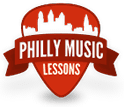
Listening from the Perspective of Possibility: How One Teacher Changed My Relationship with Music
“Music, like all true art, is an experience to be shared, not judged, for blame can not make it worse, as praise can not make it better,” my guitar teacher explained, borrowing from Pat Martino. The next twenty minutes were a blur of one-sided conversation: a mix of eloquently prepared speech and heated ranting, shifting subtly through scenes of anger, disappointment, and hope. I certainly didn’t know what I was getting myself into when I set the whole thing off by remarking, “I hate ‘Blue Bossa’.” I had unwittingly touched on perhaps the most central tenet of the Chuck Underwood teaching philosophy: open-mindedness. To him, my remark was more than a simple expression of preference, it was an indication of an attitude – the wrong attitude, an attitude he intended to correct immediately. It was only my third lesson.
“I don’t hate any music,” he continued. The remark startled me. I had grown up in a family of musical tastes (and musical distates): my dad was quick to point out his hatred of hard rock any time there was loud drumming in music. I hated songs, I hated artists, and I hated entire genres of music. The idea of not loathing some music was almost alien to me. I was sure my teacher did not truly mean what he had said. I was sure he would qualify, adding “except for country.” He did qualify, but only further confused me as he explained that, while he did not hate any music, there was music that did not compel him. This was a subtle distinction, one that I did not understand at first. Only later did it become clear: he was not asking me to love all music, or even most music. He was simply asking me to allow myself to love the music I heard, to search for what can be appreciated in all music. He was asking me to come to music from a perspective of possibility, rather than one of preconception.
I am still grasping the magnitude of that idea. At first, I struggled to quell my urge to criticize, knowing that my remarks would only lead to another rant from my teacher. However, what started as an outward behavior affected a gradual change in my thoughts. My criticisms were slowly replaced with positive remarks, but over a year passed before I realized the change my teacher had brought about in me. As I listened to
John Coltrane’s “Live at Birdland” on the bus to school, I remembered an early guitar lesson in which I expressed my distaste for Coltrane’s music (an act that is generally considered a form of jazz blasphemy). It was too frantic for my straight-ahead tastes and fell far outside the musical box I was in. A year after this lesson, I sat in my bus seat captivated by the raw energy Coltrane related as he screamed through his soprano saxophone, and the ferocity of Elvin Jones’ crashes as they brought Afro Blue to a stunning climax. I heard beauty in the music I had presumed to hate. I even learned to love Blue Bossa.
Elijah Cole
I started playing the piano at age 5, and added the guitar at age 12. By 15, I was performing professionally on both instruments. By the time I finished high school, I was not only performing regularly around the DC area, I was also teaching around 10 students per week on piano, guitar, ukulele, and electric bass. I perform often in the Philadelphia area, and travel regularly to DC to perform there as well. My goal as a teacher is to develop in my students the same love for music that I have felt since first taking up piano at age 5. My mission as a performer is to create music that stimulates the mind, soul, and spirit of its listeners.


